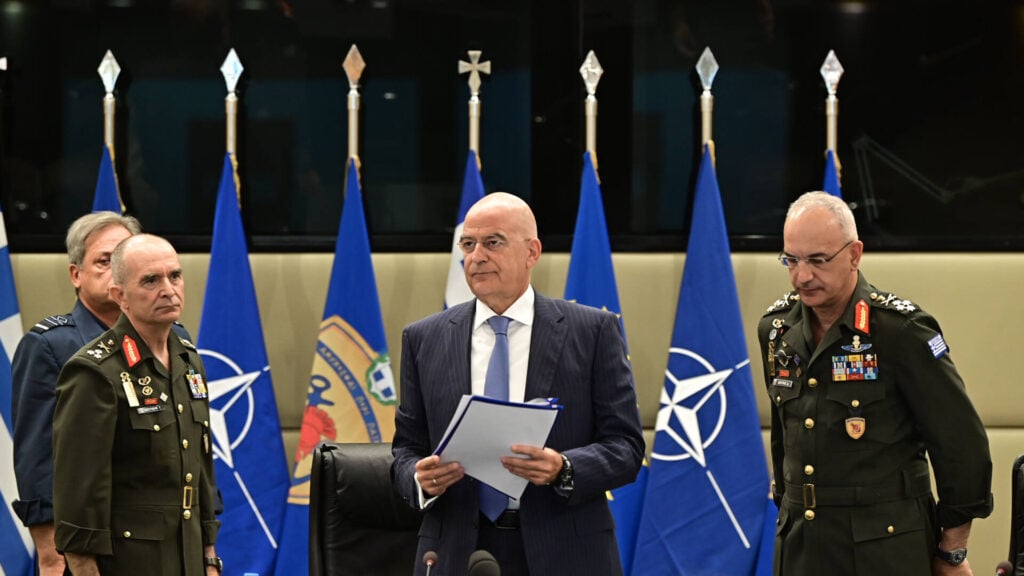Greek Australians and diaspora Greeks with dual citizenship or military obligations to Greece are being urged to review their conscription status, as sweeping military reforms announced by Defence Minister Nikos Dendias will dramatically change how and where Greeks serve.
From January 1, 2026, all conscripts will serve exclusively in the Army, with Greece abolishing mandatory service in the Navy and Air Force. The reform, part of the second phase of the government’s “Agenda 2030” defence overhaul, comes amid a broader push to streamline military structure, increase pay, and modernise the country’s armed forces in light of global security threats.
While the reforms aim to boost Greece’s military readiness, they also carry important implications for Greek men abroad, including those in Australia. Under Greek law, all male citizens aged 19 to 45 are subject to mandatory military service, even if they live overseas. However, those with verified permanent residency abroad can legally postpone conscription until the age of 45 and ultimately receive a permanent exemption. Failing to do so may result in being classified as “lipotaktis” (draft dodger), leading to legal and logistical complications, especially when visiting Greece.
To avoid such outcomes, Greek-Australians are reminded to obtain a Certificate of Permanent Residence Abroad from their local Greek consulate. This certificate allows them to defer service legally and avoids fines or travel restrictions.
The new reforms may also influence how diaspora Greeks navigate the conscription process. With the elimination of Navy and Air Force postings, Army service becomes the only available conscription path, unless an individual possesses highly specialised skills such as navigation or aeronautical engineering. This centralisation aims to unify training protocols, eliminate outdated command layers, and focus recruitment on ground forces where Greece sees the greatest strategic need.
Defence Minister Dendias highlighted key changes, including:
Monthly pay for soldiers will rise dramatically—from €8.80 to €50, and up to €100 for those stationed in border regions and the Aegean islands. For instance, an unmarried soldier orphaned by one parent will now receive €150, while those with children may earn up to €200 monthly.
The total cost of the pay raise is estimated at over €25 million, which will be funded through savings generated by structural reforms, including military base consolidations.
Structural overhaul and cost savings
The reform introduces a flatter, more agile command structure. Four new regional commands will replace older formations, including the abolition of the 1st Army. Command layers are being streamlined, freeing up over 30,000 personnel hours monthly.
- The new Supreme Military Commands are:
- Thrace (formerly the 4th Army Corps)
- Epirus and Macedonia
- Aegean and Eastern Mediterranean
- Supreme Support Command (ASDYS), retaining its current role
This reorganisation also involves merging 45 additional military camps (after 137 already merged) and reducing military courts from 15 to six, resulting in annual savings of €101.5 million.
“We’re eliminating outdated, bureaucratic structures,” Dendias stated, “and giving greater autonomy to frontline formations. The future battlefield demands real-time decision-making—there’s no time for approvals climbing a rigid hierarchy.”
Defence infrastructure and innovation
Responding to modern threats—especially lessons from the war in Ukraine—Greece will invest €65 million in 522 new fortification projects, with 207 on the mainland and 315 on Aegean islands, to be completed within three years.
Dendias also highlighted the continuing success of the “Achilles’ Shield” initiative, which aims to develop an integrated national defence system, including anti-missile, anti-drone, anti-ship, and anti-submarine capabilities.
Housing and welfare for armed forces
A robust housing program is also underway. While only 799 military homes were built over the past 20 years, the Ministry plans to construct 1,059 new residences by August 2026—mostly in Thrace and the Aegean islands—and a total of 2,059 by 2027.
Combined with salary increases and improved healthcare services, the goal is to make military careers more attractive to younger Greeks.
“We need the best men and women in our Armed Forces,” Dendias emphasised. “The threats we face are disproportionately larger than our population. We must match them with excellence.”
A new bill before parliament aims to consolidate three military pension and property funds into a single entity (TAETHA) and establish a new agency (FAAED) to manage and monetise military real estate.
Revenue will be reinvested into military housing and infrastructure maintenance. Dendias assured the public that transparency and accountability would be built into the legislation and welcomed proposals from opposition parties to enhance oversight.
A modern nutrition and logistics code for the military is being introduced, with quality control and auditing mechanisms led by the Army Inspector General.
“It’s unacceptable for soldiers serving their country to be left with inadequate meals,” Dendias said. “We’re ensuring their basic dignity is protected.”
Expanded Defence planning, NATO and third phase preview
The Defence Ministry has submitted, for the first time in Greek history, a long-term armaments plan extending 12–20 years, committing 25% of its budget to strengthen the domestic defence industry and innovation ecosystem.
Dendias also underscored the achievements of the Hellenic Defence Innovation Centre (ELKAK), with ten projects underway and eleven more set to launch. Flagship projects like the “Centaur” UAV are already in progress.
Following the dissolution of the 1st Army, its NATO and EU command functions will be transferred to the Army Inspector General, who will be based in Larissa and take on an enhanced oversight role.
Minister Dendias hinted at a third reform phase already in the works, signalling ongoing transformation across the Armed Forces in response to rapidly changing military technologies and geostrategic realities.








